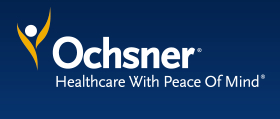To Assess Safety and Efficacy of Myoblast Implantation Into Myocardium Post Myocardial Infarction
| Status: | Active, not recruiting |
|---|---|
| Conditions: | Cardiology, Cardiology |
| Therapuetic Areas: | Cardiology / Vascular Diseases |
| Healthy: | No |
| Age Range: | 18 - 80 |
| Updated: | 7/22/2017 |
| Start Date: | September 2007 |
A Multicenter Study to Assess the Safety and Cardiovascular Effects of Myocell™ Implantation by a Catheter Delivery System in Congestive Heart Failure Patients Post Myocardial Infarction(s)
This study injects a person's own stem cells into heart muscle tissue after a person has one
or more heart attacks. The purpose of the study is whether the stem cells will improve a
patient's heart performance.
or more heart attacks. The purpose of the study is whether the stem cells will improve a
patient's heart performance.
Autologous myoblasts are harvested from a patient's skeletal muscle tissue. The myoblasts are
isolated and expanded in culture in a closed system. When a sufficient number of cells are
estimated they are taken from culture, packaged in a suspension and sent to the patient's
interventionalist. The interventionalist uses an injection catheter via femoral artery to
inject the myoblasts directly into the myocardium.
isolated and expanded in culture in a closed system. When a sufficient number of cells are
estimated they are taken from culture, packaged in a suspension and sent to the patient's
interventionalist. The interventionalist uses an injection catheter via femoral artery to
inject the myoblasts directly into the myocardium.
Inclusion Criteria:
Eligible patients must meet ALL of the following inclusion criteria during the
screening/enrollment visit #1 and prior to being randomized into the study.
Screening/enrollment visit #1 is defined to start the date the ICF is signed by the
patient:
1. Chronic CHF, New York Heart Association (NYHA) Class II-IV;
2. Stable and on optimal medical management for greater or equal to 60 days as follows:
1. systolic and diastolic hypertension controlled in accordance with contemporary
guidelines;
2. patient stabilized on maximum tolerated dose of beta blockers;
3. patient stabilized on maximum tolerated dose of angiotensin concerting enzyme
(ACE) inhibitors;
4. patients intolerant of ACE inhibitors should be stabilized on angiotensin
receptor blockers (ARB);
5. fluid control with diuretics and a salt restricted diet;
6. patients with sever symptoms of heart failure (Class III-IV) lacking
contraindications to aldosterone antagonism and not on both ACE inhibitors and
ARBs have been considered for such therapy.
3. Age 18-80;
4. Left ventricular ejection fraction (LVEF) at screening of less than or equal to 35
percent by multiple gaited acquisition scan (MUGA);
5. Need or feasibility for revascularization has been ruled out by previous coronary
angiogram or ruled out to the satisfaction of the investigator via previous
conventional stress study completed within 1 year of screening. The need or
feasibility for revascularization will be reassessed at screening using dobutamine
stress echocardiography (DSE);
6. Defined region of mycardial dysfunction related to previous MI involving the anterior,
later, posterior or inferior walls including the apical septum (excluding the basal
septum) assessed by a large area of akinesia in the left ventricle (using DSE at
screening);
7. B-type natriuretic peptide (BNP) or NT pro-BNP is above the upper limit of normal.
Exclusion Criteria:
1. Non-pregnant women who are not postmenopausal, surgically sterile or not practicing an
acceptable method of contraception. A female patient of child bearing potential, with
a positive serum or urine pregnancy test at screening visit #1. Females refusing to
exercise a reliable form of contraception;
2. Myocardial wall thickness of <6 mm (millimeters) in the akinetic myocardial region to
be injected (using DSE at screening)
3. Inability to undergo a surgical biopsy of the skeletal muscle for culture of
myoblasts, including any significant myopathy;
4. Patient will require revascularization within six months;
5. Patients on continuous or intermittent intravenous drug therapy;
6. Not fitted, or fitted within less than 90 days prior to screening visit #1, with an
implantable cardioverter defibrillator (ICD);
7. Sustained ventricular tachycardia (VT), automatic implantable cardiodefibrillator
(AICD) firing, or ventricular fibrillation (VF) within 90 days prior to screening
visit #1;
8. Inability to perform a 6 minute walk test due to physical limitations other than HF
including:
1. Severe peripheral vascular disease, including aortic aneurysms, leading to
limited claudication;
2. Severe pulmonary disease or chronic obstructive pulmonary disease (COPD) limiting
exercise, dependence on chronic oral steroid therapy or previously requiring
mechanical ventilation;
3. Stroke or transient ischemic attack leading to limitations in lower extremities
or occurring within 180 days prior to screening visit #1;
9. MI, unstable angina or percutaneous coronary intervention (PCI) within 90 days prior
to screening;
10. having undergone CABG surgery within 150 days prior to screening visit #1;
11. Active myocarditis, constrictive pericarditis, restrictive, hypertrophic or congenital
cardiomyopathy;
12. Hemodynamically significant severe primary valvular heart disease, unless corrected by
a properly functional prosthetic valve;
13. Prior aortic valve replacement;
14. Systolic blood pressure (supine) ≤90 mmHg;
15. Resting heart rate >100 bpm;
16. Severe uncontrolled HF including any evidence of severe fluid overload such as
peripheral edema >+2 or rales ≥1/3 the lungs' height, need for intravenous therapy for
HF within 60 days of screening visit #1 or hospitalization for HF within 90 days of
screening visit #1;
17. Patient scheduled to receive cardiac resynchronization therapy (CRT) during the study;
18. Expected to receive or received a cardiac transplant, surgical remodeling procedure,
left ventricular assist device or cardiomyoplasty;
19. Six-minute walk test (6MWT) of >400 meters or Minnesota Living With Heart Failure
(MLWHF) score of <20;
20. Hematocrit (HCT) concentration below 30% (males) or below 27% (females);
21. Serum creatinine greater than 2.5 mg/dL (milligrams per deciliter) or end stage renal
disease;
22. Left ventricular mural thrombus;
23. Known sensitivity to gentamicin sulfate; or severe adverse reaction to nonionic
radiocontrast agents;
24. Active infectious disease and/or known to have tested positive for human
immunodeficiency virus (HIV), human t lymphotrophic virus (HTLV), hepatitis B virus
(HBV), hepatitis C virus (HCV), cytomegalovirus (CMV); immunoglobulin M [IgM], and/or
syphilis. If the panel includes antibodies to the HBV core antigen (HBV-cAg) and
hepatitis B surface antigen (HBV-sAg), then an expert will be consulted as to
patient's eligibility based on the patient's infectious status;
25. Patients have undergone enhanced external pulsation (EECP) tratment within the last 6
months;
26. Exposure to any previous experimental angiogenic therapy and/or myocardial laser
therapy, or therapy with another investigational drug within 60 days of screening
visit #1 or enrollment in any concurrent study that may confound the results of this
study;
27. Known drug or alcohol dependence or any other factors which will interfere with the
study conduct or interpretation of the results or in the opinion of the investigator
are not suitable to participate;
28. Any illness other than CHF which might reduce life expectancy to less than 1 year from
screening visit #1;
29. Recent initiation of cardiac resynchronization therapy via placement of a
bi-ventricular pacemaker or bi-ventricular AICD within 180 days of study enrollment;
and
30 Unwilling and/or not able to give written informed consent.
We found this trial at
33
sites
Click here to add this to my saved trials
Cleveland Clinic Cleveland Clinic is committed to principles as presented in the United Nations Global...
Click here to add this to my saved trials
University of Florida The University of Florida (UF) is a major, public, comprehensive, land-grant, research...
Click here to add this to my saved trials
1601 Northwest 12th Avenue
Miami, Florida 33136
Miami, Florida 33136
(305) 243-6545

University of Miami Miller School of Medicine The University of Miami Leonard M. Miller School...
Click here to add this to my saved trials
Click here to add this to my saved trials
Click here to add this to my saved trials
Click here to add this to my saved trials
Click here to add this to my saved trials
Click here to add this to my saved trials
Rush University Medical Center Rush University Medical Center encompasses a 664-bed hospital serving adults and...
Click here to add this to my saved trials
Click here to add this to my saved trials
Click here to add this to my saved trials
Click here to add this to my saved trials
Duke Univ Med Ctr As a world-class academic and health care system, Duke Medicine strives...
Click here to add this to my saved trials
Click here to add this to my saved trials
Click here to add this to my saved trials
Click here to add this to my saved trials
Click here to add this to my saved trials
University of Iowa Hospitals and Clinics University of Iowa Hospitals and Clinics—recognized as one of...
Click here to add this to my saved trials
Click here to add this to my saved trials
Click here to add this to my saved trials
Click here to add this to my saved trials
Click here to add this to my saved trials
Click here to add this to my saved trials
Click here to add this to my saved trials
Ochsner Medical Center Ochsner Medical Center is located near uptown New Orleans and includes acute...
Click here to add this to my saved trials
Columbia University Medical Center Situated on a 20-acre campus in Northern Manhattan and accounting for...
Click here to add this to my saved trials
Newark Beth Israel Medical Center Newark Beth Israel Medical Center, a regional care, teaching hospital...
Click here to add this to my saved trials
University of Oklahoma The OU Health Sciences Center is composed of seven health-related colleges located...
Click here to add this to my saved trials
Click here to add this to my saved trials
Click here to add this to my saved trials
University of Pittsburgh Medical Center UPMC is one of the leading nonprofit health systems in...
Click here to add this to my saved trials
Swedish Medical Center Since 1910, Swedish has been the region's hallmark for excellence in health...
Click here to add this to my saved trials










